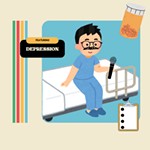Naked City
Cap Metro Makes Its Numbers
By Mike Clark-Madison, Fri., Aug. 29, 2003
Like everyone else that relies on sales tax -- including the city and the state -- Capital Metro has seen a steep decline in revenue for nearly two years. The agency expects to take in $104.4 million in sales-tax revenue in FY 04 -- a slight improvement over this year's actual receipts but nearly 10% less that it had expected in last year's budget. Sales tax makes up more than 77% of the transit authority's total revenue; passenger fares make up less than 3%. Increases in other revenue sources -- freight-rail operations, federal grants, and income on investments -- offset the sales-tax drop to leave Capital Metro with an overall 2.8% revenue decline from the current year.
On the expense side, Capital Metro's budget-scrubbing has included using automated passenger counters to get better data on ridership and accordingly planning to slightly reduce services on less-used routes. "None of these are drastic," says Capital Metro chief financial officer Cynthia Hernandez, and changes -- such as reducing a route frequency from 15 minutes to 17 or 18 -- should "have minimal impact on the customer." Most of these changes would be implemented in January. These and other efficiencies helped a little, but couldn't offset a 15% jump in Capital Metro's health care costs and previously contracted salary increases with the agency's unionized employees. They're getting a 4% raise; nonunion employees will get 2.5% raises.
All told, the agency's $114.7 million in spending would translate into 80% of the sales-tax revenue. Board members balked, the agency says, at additional service cuts, fare increases, or smaller pay raises as strategies to bring the budget below the 75% target. "We've tried to make sure to maintain a service level to attract ridership, and keeping the fare reasonable and affordable helps the economy," says Capital Metro CEO and President Fred Gilliam, who adds that other expenses -- converting buses to ultra-low-sulfur diesel fuel and running fare-free on ozone-action days -- are worth the price. "We're committed to being as pollution-free as we can," he says.
Gilliam and Hernandez anticipate that, as it has since 2001, the board will consider using the 25% surplus in Capital Metro sales-tax revenue to fund transportation projects in member jurisdictions. The board will conduct a public hearing on the budget Sept. 17 and vote on adoption Sept. 29.
Got something to say on the subject? Send a letter to the editor.








